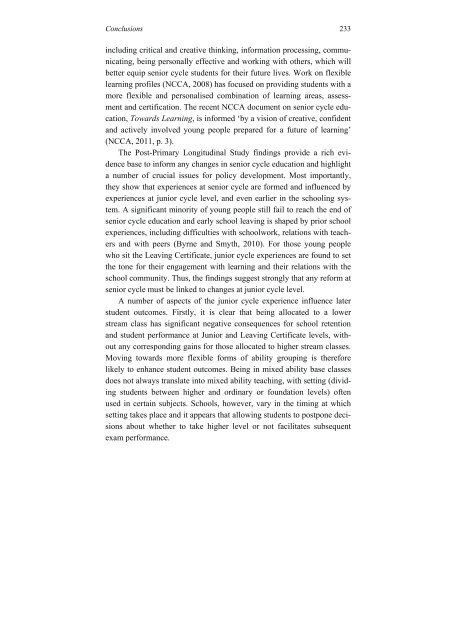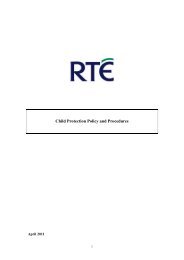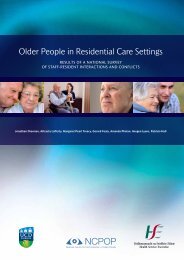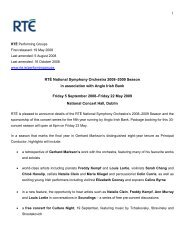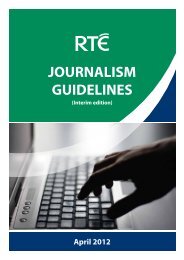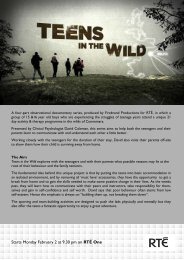From Leaving CertiFiCate to Leaving SChooL a Longitudinal Study ...
From Leaving CertiFiCate to Leaving SChooL a Longitudinal Study ...
From Leaving CertiFiCate to Leaving SChooL a Longitudinal Study ...
Create successful ePaper yourself
Turn your PDF publications into a flip-book with our unique Google optimized e-Paper software.
Conclusions 233<br />
including critical and creative thinking, information processing, communicating,<br />
being personally effective and working with others, which will<br />
better equip senior cycle students for their future lives. Work on flexible<br />
learning profiles (NCCA, 2008) has focused on providing students with a<br />
more flexible and personalised combination of learning areas, assessment<br />
and certification. The recent NCCA document on senior cycle education,<br />
Towards Learning, is informed ‘by a vision of creative, confident<br />
and actively involved young people prepared for a future of learning’<br />
(NCCA, 2011, p. 3).<br />
The Post-Primary <strong>Longitudinal</strong> <strong>Study</strong> findings provide a rich evidence<br />
base <strong>to</strong> inform any changes in senior cycle education and highlight<br />
a number of crucial issues for policy development. Most importantly,<br />
they show that experiences at senior cycle are formed and influenced by<br />
experiences at junior cycle level, and even earlier in the schooling system.<br />
A significant minority of young people still fail <strong>to</strong> reach the end of<br />
senior cycle education and early school leaving is shaped by prior school<br />
experiences, including difficulties with schoolwork, relations with teachers<br />
and with peers (Byrne and Smyth, 2010). For those young people<br />
who sit the <strong>Leaving</strong> Certificate, junior cycle experiences are found <strong>to</strong> set<br />
the <strong>to</strong>ne for their engagement with learning and their relations with the<br />
school community. Thus, the findings suggest strongly that any reform at<br />
senior cycle must be linked <strong>to</strong> changes at junior cycle level.<br />
A number of aspects of the junior cycle experience influence later<br />
student outcomes. Firstly, it is clear that being allocated <strong>to</strong> a lower<br />
stream class has significant negative consequences for school retention<br />
and student performance at Junior and <strong>Leaving</strong> Certificate levels, without<br />
any corresponding gains for those allocated <strong>to</strong> higher stream classes.<br />
Moving <strong>to</strong>wards more flexible forms of ability grouping is therefore<br />
likely <strong>to</strong> enhance student outcomes. Being in mixed ability base classes<br />
does not always translate in<strong>to</strong> mixed ability teaching, with setting (dividing<br />
students between higher and ordinary or foundation levels) often<br />
used in certain subjects. Schools, however, vary in the timing at which<br />
setting takes place and it appears that allowing students <strong>to</strong> postpone decisions<br />
about whether <strong>to</strong> take higher level or not facilitates subsequent<br />
exam performance.


